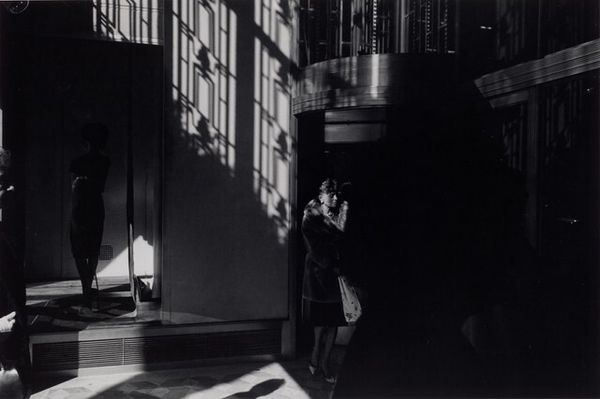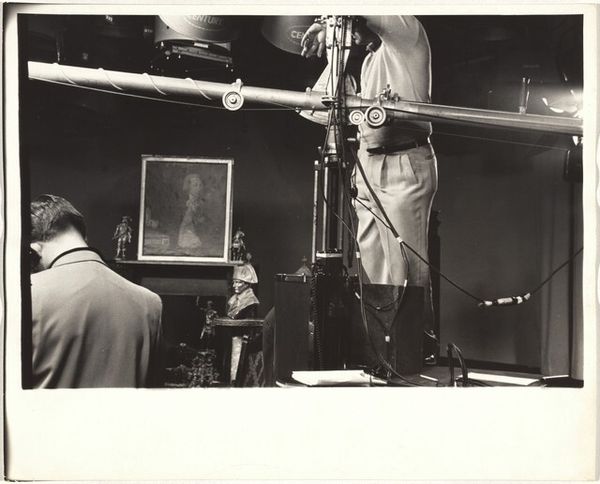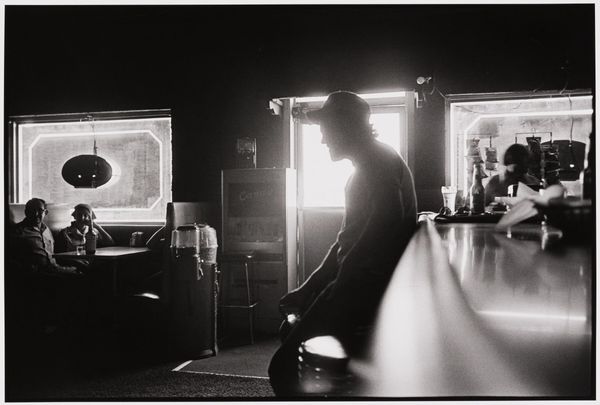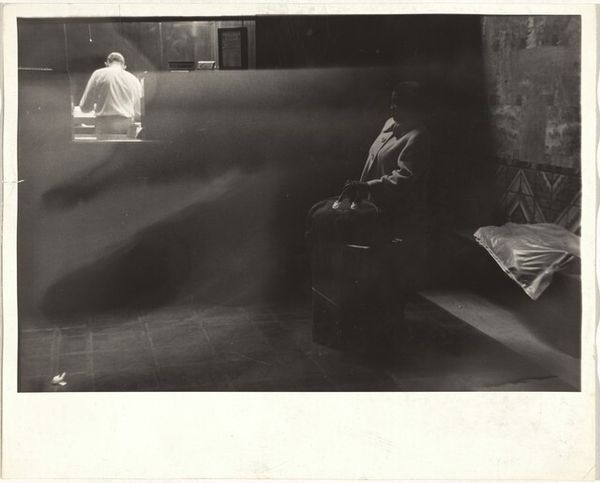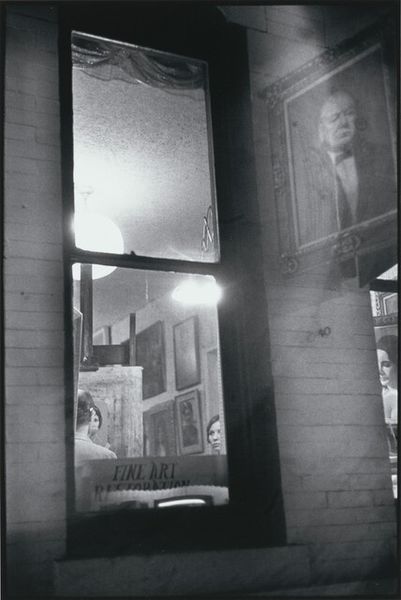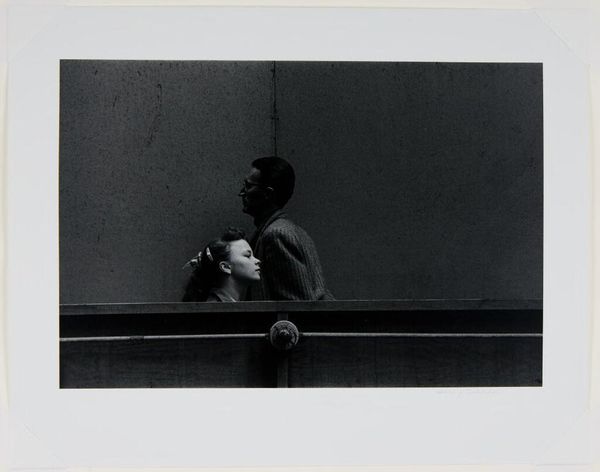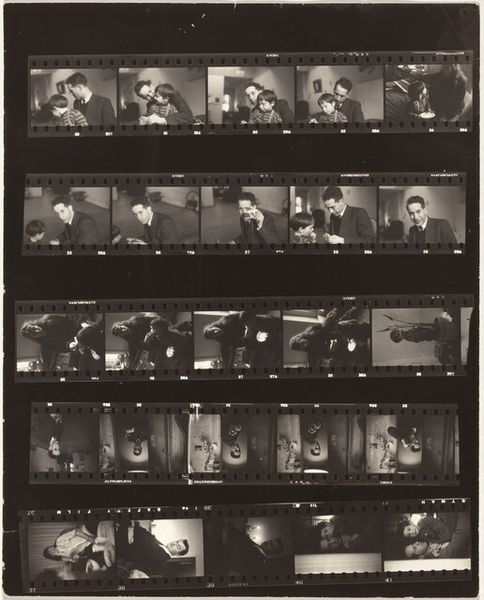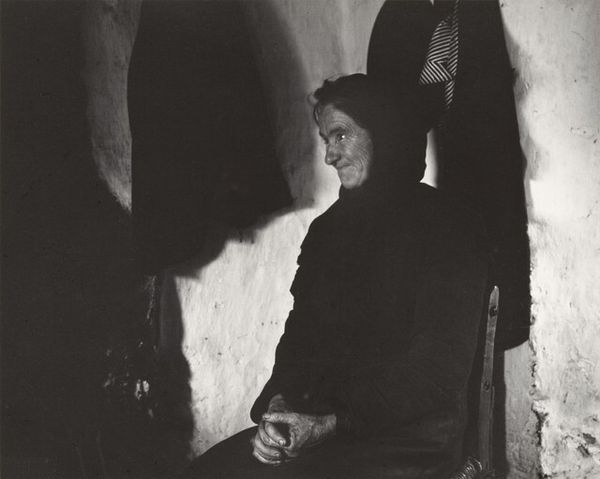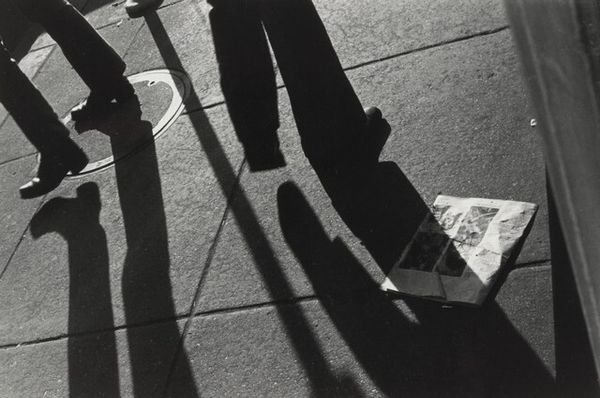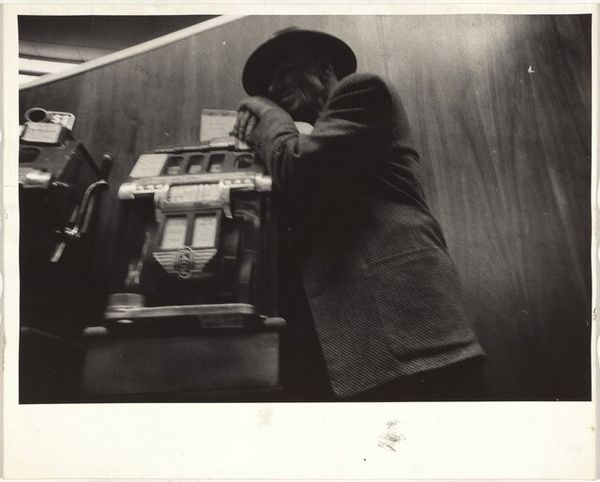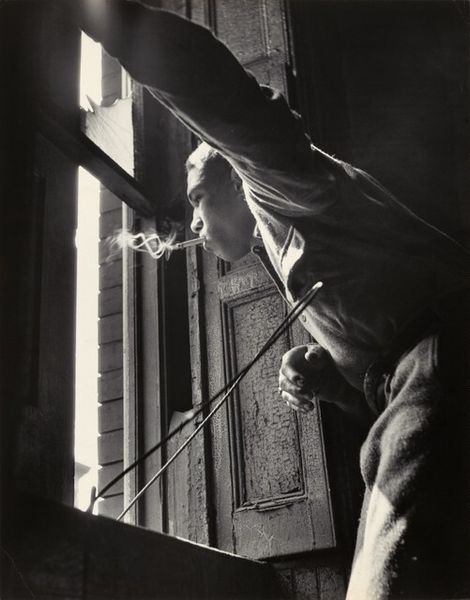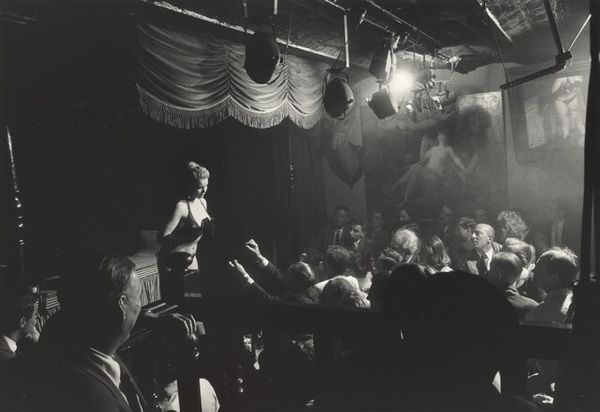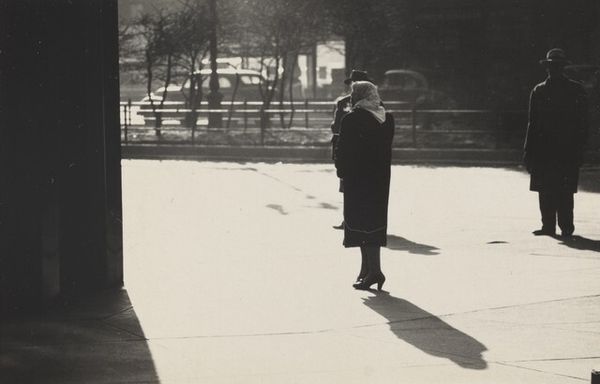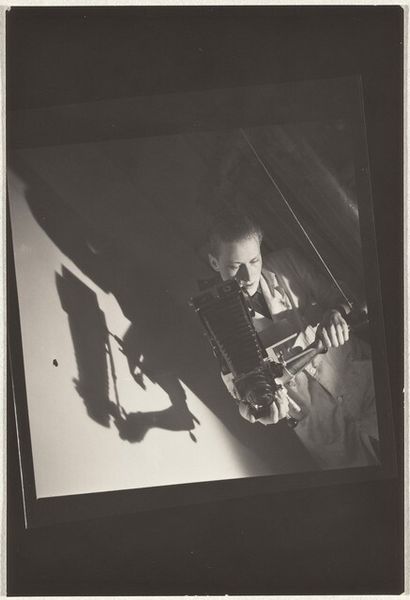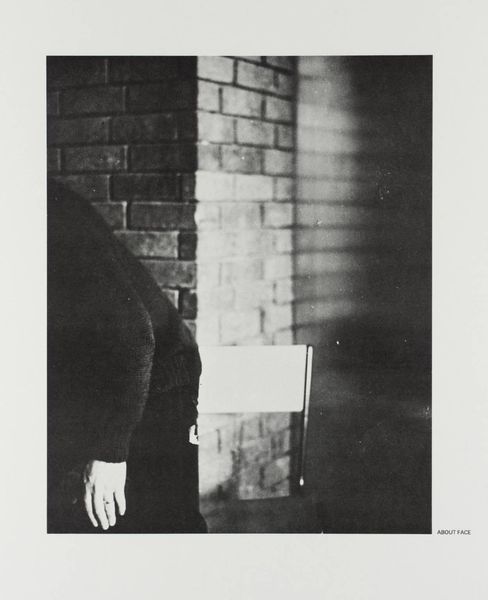
Anthony Esposito, Accused "Cop Killer" January 16, 1941, printed 1960s
0:00
0:00
photography, gelatin-silver-print
#
portrait
#
black and white photography
#
black and white format
#
archive photography
#
street-photography
#
photography
#
historical photography
#
black and white theme
#
photojournalism
#
black and white
#
gelatin-silver-print
#
monochrome photography
#
ashcan-school
#
monochrome
Dimensions: image: 33.5 x 26.4 cm (13 3/16 x 10 3/8 in.) sheet: 35.2 x 27.8 cm (13 7/8 x 10 15/16 in.)
Copyright: National Gallery of Art: CC0 1.0
Editor: This photograph, taken by Weegee on January 16, 1941, and titled "Anthony Esposito, Accused 'Cop Killer'," is a gelatin silver print. It's incredibly stark; the mood is heavy with what feels like impending doom. What stands out to you most about this image? Curator: That's it, impending doom hangs like cigarette smoke, doesn't it? What grips me is the theatre of it all. Weegee, ever the showman, caught Esposito in this strange procession. The bandage, the dishevelment – it’s not just a photo, it's a scene. The so-called criminal is our main attraction, escorted stage left, stage right. You get the sense Weegee felt the grit of the city, saw the tragic beauty, even glamorized it a bit. He certainly saw his protagonists in a cinematic way. Don't you think? Editor: Absolutely! I hadn't thought of it that way, but seeing it as theatrical is really insightful. The composition definitely points to a sort of...narrative drama? So, what does that say about how he viewed his subjects, especially those accused of crimes? Curator: That’s the knotty bit, isn’t it? Were they subjects, or were they players in his personal dramas? I believe it’s a slippery slope from chronicler to manipulator. I always find myself asking, ‘whose story is *really* being told here?’. Weegee seemed to want to be both a witness and a maker, using the raw material of reality and bending it towards…well, towards Weegee. And there is an uncomfortable charm in all of that, do not you think? Editor: That makes so much sense. The blurred lines between journalism and art definitely add a layer of complexity. Thanks, that's given me a lot to think about. Curator: The pleasure is all mine!
Comments
No comments
Be the first to comment and join the conversation on the ultimate creative platform.
